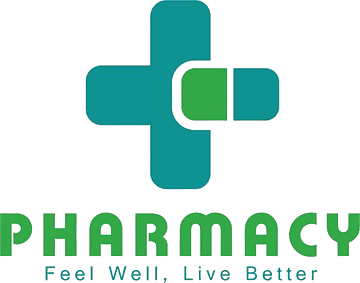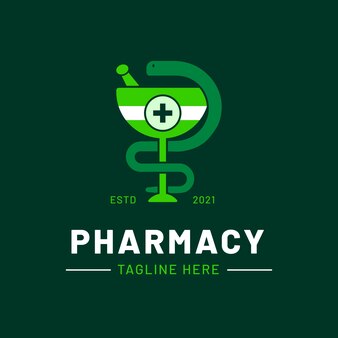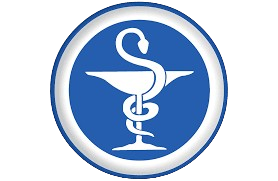B.Pharmacy Course
The study of pharmaceutical sciences is the primary focus of the undergraduate Bachelor of Pharmacy (B.Pharmacy) curriculum. Moreover, Typically spanning four years, this program provides students with a comprehensive understanding of a range of subjects. For instance, it covers pharmaceutics, pharmaceutical chemistry, pharmacology, and pharmacognosy. Moreover, the course material is designed to equip students with the essential knowledge and skills required to grasp medication interactions, composition, therapeutic roles, and side effects. Consequently, students are well-prepared to navigate the complexities of pharmaceuticals effectively.
In addition to receiving instruction in the preparation and administration of pharmaceuticals, students also gain knowledge of the legal and ethical framework that governs the pharmacy industry. Furthermore, the course covers subjects such as biochemistry, human anatomy, and physiology to help students understand how medications affect the human body. Moreover, practical instruction in laboratories, internships in pharmacies or hospitals, and industrial trips play a crucial role in the B.Pharmacy degree program. Additionally, These hands-on experiences enable students to acquire practical skills and apply their theoretical knowledge in real-world settings.
Graduates of the B.Pharmacy program have various career opportunities available to them. Howover, They can work as pharmacists, be employed by pharmaceutical companies, engage in research and development, or pursue further education. Additionally, The program opens doors to both public and private sector roles, including positions in clinics, hospitals, pharmacies, government agencies, and pharmaceutical companies. Moreover, This diverse range of options allows graduates to choose a path that aligns with their interests and career goals.
Key Aspects of B.Pharmacy Course

A Bachelor of Pharmacy (B.Pharmacy) is an undergraduate degree program designed to prepare students for careers in the pharmaceutical industry, healthcare, and related fields. Moreover, Typically lasting four years, the program encompasses a wide range of subjects related to medicine, chemistry, biology, and pharmacy practice. Additionally, This comprehensive curriculum equips students with the knowledge and skills needed to excel in various roles within the pharmaceutical sector.
Curriculum
Core Subjects: Pharmaceutical Chemistry, Pharmacology, Pharmacognosy, Pharmaceutics, Pharmaceutical Analysis, and Clinical Pharmacy.
Lab Work: Extensive practical training in laboratories to develop skills in drug formulation, analysis, and quality control.
Internship: Many programs include internships or industrial training, providing hands-on experience in hospitals, pharmaceutical companies, or research organizations.
Eligibility
- Students must have completed 10+2 (or equivalent) with subjects like Physics, Chemistry, Biology/Mathematics.
- A minimum aggregate percentage in these subjects is usually required, which may vary by institution.
Admission Process
- Admission can be based on entrance exams (like EAMCET, NEET, etc.), merit in qualifying exams, or both.
- Some institutions also have their own entrance tests or interview processes.
Career Opportunities
Pharmacist: Working in hospitals, community pharmacies, or clinics.
Research & Development: Engaging in drug research, clinical trials, and new drug development.
Quality Control & Assurance: Ensuring the quality and safety of pharmaceutical products.
Regulatory Affairs: Managing regulatory processes related to drug approval and compliance.
Sales & Marketing: Working as medical representatives or in pharmaceutical marketing.
Further Studies
- Graduates can pursue higher education like M.Pharmacy, Pharm.D, or even research-oriented programs like Ph.D. in Pharmacy.
Scope
- The pharmaceutical industry is growing rapidly, offering vast opportunities in research, production, and healthcare services.
- There is also a growing demand for pharmacists in both the public and private sectors, making it a promising field with good career prospects.
The B.Pharmacy course is an ideal choice for those interested in the science of medicine, drug formulation, and patient care.
B.Pharmacy Official Website: https://pharmacycouncil.telangana.gov.in/site/termsandconditions_bPharm
FAQs (Frequently Asked Questions)
1. What is B.Pharmacy?
- The Bachelor of Pharmacy (B.Pharmacy) is an undergraduate degree program dedicated to the study of pharmaceutical sciences. It covers various aspects such as drug development, drug interactions, pharmacology, and the preparation and dispensing of medications. This program aims to provide students with a thorough understanding of these critical areas to prepare them for careers in the pharmaceutical field.
2. What is the duration of the B.Pharmacy course?
- The B.Pharmacy course typically spans four years and is divided into eight semesters.
3. What are the eligibility criteria for B.Pharmacy?
- To be eligible for a B.Pharmacy program, candidates generally need to have completed 10+2 (Intermediate) with Physics, Chemistry, and Biology or Mathematics as core subjects. Additionally, some colleges may require a minimum percentage in these subjects for admission.
4. What subjects are covered in the B.Pharmacy curriculum?
- The curriculum includes subjects such as Pharmaceutics, Pharmacology, Pharmaceutical Chemistry, Pharmacognosy, Biochemistry, Human Anatomy and Physiology, and Pharmaceutical Analysis.
5. Is there any entrance exam for admission to B.Pharmacy?
- Yes, many universities and states conduct entrance exams like EAMCET, NEET, MHT CET, BITSAT for admission to the B.Pharmacy course.
6. What are the career opportunities after completing B.Pharmacy?
- Graduates can work as Pharmacists, Drug Inspectors, Pharmaceutical Sales Representatives, Clinical Research Associates, Medical Writers, and Quality Control Associates. They can also pursue higher studies like M.Pharmacy, MBA, or Pharm.D.
7. Can B.Pharmacy graduates open their own pharmacy?
- Yes, B.Pharmacy graduates are eligible to open their own pharmacy or drugstore after registering with the state pharmacy council.
8. What is the difference between B.Pharmacy and Pharm.D?
- B.Pharmacy is a 4-year undergraduate course focusing on pharmaceutical sciences, while Pharm.D is a 6-year program (including 1 year of internship) that focuses more on clinical pharmacy and patient care.
9. Is B.Pharmacy recognized worldwide?
- B.Pharmacy degrees from accredited institutions in India are recognized in many countries. However, graduates may need to pass additional exams or meet specific requirements to practice as a pharmacist in countries like the USA, UK, or Australia.
10. What are the higher education options after B.Pharmacy?
- After completing a B.Pharmacy, students can pursue further education in various fields. Options include M.Pharmacy, Pharm.D, MBA in Pharmaceutical Management, MS in Pharmacy or related fields, and even Ph.D. programs in pharmaceutical sciences.



